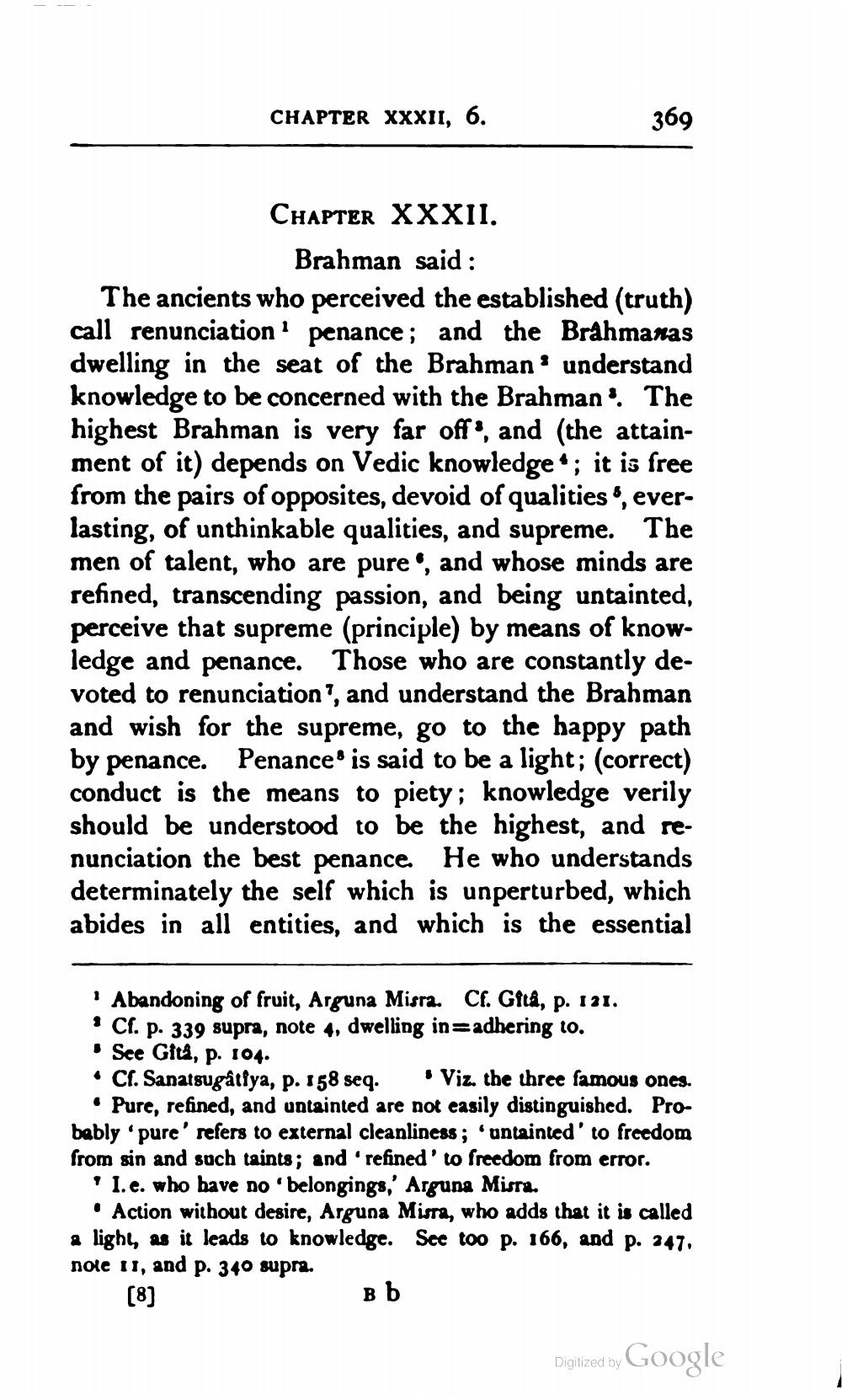________________
CHAPTER XXXII, 6.
369
CHAPTER XXXII.
Brahman said: The ancients who perceived the established (truth) call renunciation' penance; and the Brahmanas dwelling in the seat of the Brahman: understand knowledge to be concerned with the Brahman. The highest Brahman is very far off', and (the attainment of it) depends on Vedic knowledge * ; it is free from the pairs of opposites, devoid of qualities, everlasting, of unthinkable qualities, and supreme. The men of talent, who are pure, and whose minds are refined, transcending passion, and being untainted, perceive that supreme (principle) by means of knowledge and penance. Those who are constantly devoted to renunciation', and understand the Brahman and wish for the supreme, go to the happy path by penance. Penance' is said to be a light; (correct) conduct is the means to piety; knowledge verily should be understood to be the highest, and renunciation the best penance. He who understands determinately the self which is unperturbed, which abides in all entities, and which is the essential
"Abandoning of fruit, Arguna Misra. Cf. Gitá, p. 121. • Cl. p. 339 supra, note 4, dwelling in=adhering 10. "See Gita, p. 104. • Cf. Sanatsugâtiya, p. 158 seq. . Viz. the three famous ones.
• Pure, refined, and untainted are not easily distinguished. Probably "pure' refers to external cleanliness; .untainted' to freedom from sin and soch taints; and refined' to freedom from error.
'l.e. who have no 'belongings,' Arguna Misra.
• Action without desire, Arguna Misra, who adds that it is called a lighi, as it leads to knowledge. See too p. 166, and p. 347. nole it, and p. 340 supra.
вь
[8]
Digitized by Google




